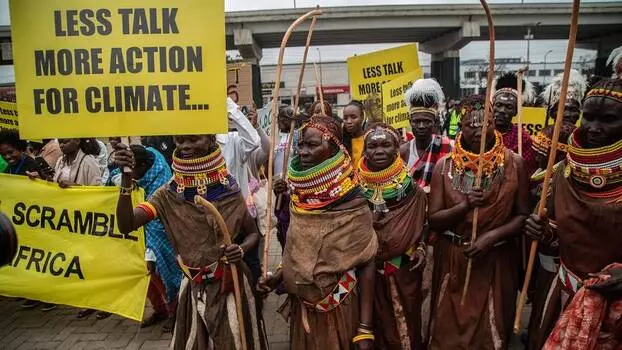
Environmental activists in Nairobi staged a march on Saturday, urging significant restrictions on plastic production, in anticipation of a meeting to discuss a worldwide plastics treaty.
Delegates from over 170 nations are set to convene in Nairobi starting Monday to discuss the specific measures that should be incorporated into a binding global treaty aimed at eliminating plastic pollution.
Marchers waved placards reading “Plastic crisis = climate crisis” and “End multigenerational toxic exposure”.
They vocalized the slogan “let polluters pay the price” as they marched slowly behind a ceremonial band from central Nairobi to a park in the western part of the capital.
Last year, nations reached a consensus to conclude a groundbreaking UN treaty by 2024, addressing the pervasive issue of plastics found across diverse environments, including mountaintops, ocean depths, and even within human blood and breast milk.
While negotiators have convened twice before, Nairobi represents the initial opportunity to deliberate on a draft treaty, published in September, that delineates various approaches to addressing the plastic issue.
The session scheduled from November 13-19 marks the third of five meetings in an expedited process with the goal of concluding negotiations next year, facilitating the adoption of the treaty by mid-2025.
During the recent discussions in Paris, activists accused major plastic-producing nations of intentionally delaying progress, with two days being lost to debates on procedural matters.
In the current round, the sessions have been prolonged by two days. However, apprehensions persist that a less robust treaty might materialize if substantial time is consumed in circular discussions without delving into detailed considerations.
Global plastic production has surpassed 460 million tonnes, more than doubling since the beginning of the century, and it could triple by 2060 without intervention. Presently, only nine percent of plastic is being recycled.
Microplastics have been discovered in various environments, ranging from clouds to the deepest sea trenches, and they are prevalent throughout the human body.
The impact of plastics on human health is not yet fully understood, but there is an increasing concern among scientists.
Plastic also plays a role in contributing to global warming, constituting 3.4 percent of global emissions in 2019, as reported by the Organisation for Economic Cooperation and Development.
